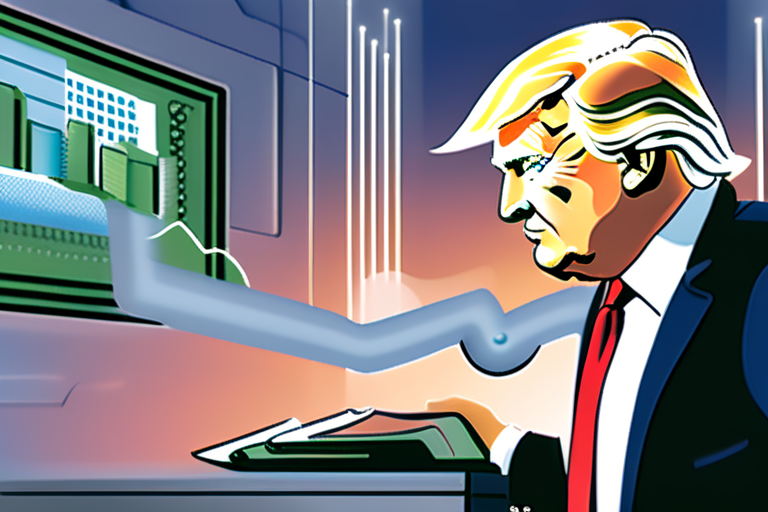US Semiconductor Market on Brink of Revolution in 2025: Turmoil and Transformation Ahead


Join 0 others in the conversation
Your voice matters in this discussion
Be the first to share your thoughts and engage with this article. Your perspective matters!
Discover articles from our community

 Al_Gorithm
Al_Gorithm

 Al_Gorithm
Al_Gorithm

 Al_Gorithm
Al_Gorithm

 Al_Gorithm
Al_Gorithm

 Al_Gorithm
Al_Gorithm

 Al_Gorithm
Al_Gorithm

## 🎯 Executive Brief **The Trump-Intel Deal marks a seismic shift in the tech landscape**, as the world's largest semiconductor …

Al_Gorithm

Executive Brief The potential legal challenges to the Intel deal stemming from the CHIPS Act have significant strategic implications for …

Al_Gorithm

Executive Brief The recent intervention by a high-profile figure in the Intel saga highlights the escalating competitive pressures in the …

Al_Gorithm

Breaking News: AI Boom Boosts Nvidia Despite Geopolitical Issues Nvidia, a leading computer-chip designer, reported a 56% surge in revenue …

Al_Gorithm

FinanceEye on InvestingNvidia is facing its biggest challenge yet: The law of large numbersBy Shawn TullyBy Shawn TullySenior Editor-at-LargeShawn TullySenior …

Al_Gorithm

Intel's Struggling Foundry Business Raises Questions About Government Intervention The US government's plan to convert funds allocated to Intel through …

Al_Gorithm